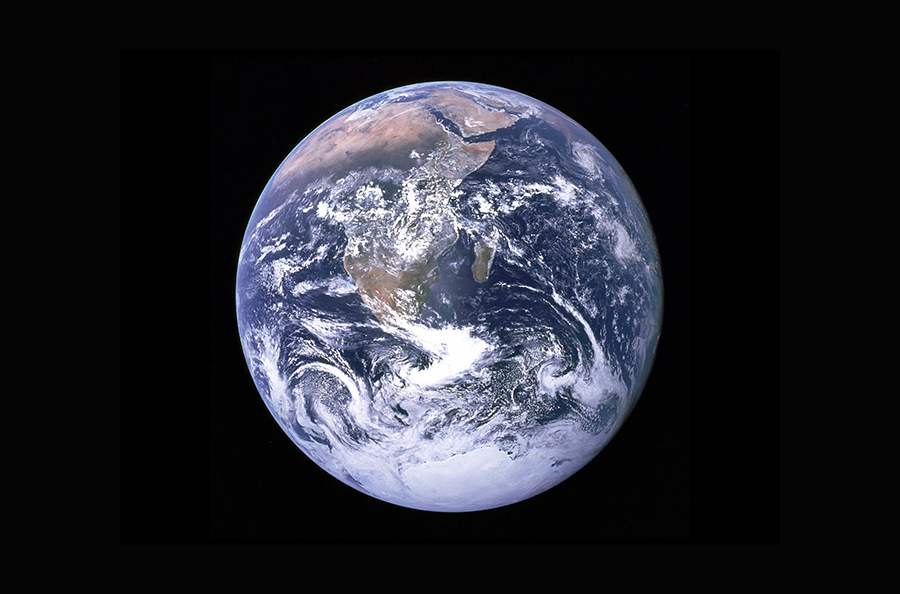What’s The Point In Making Profit If We Won’t Have A Planet?
As the world’s attention turns to Cop27 in Egypt, Liberty Guild’s Jon Williams asks why so few of the industry’s biggest firms have opted for B Corp status.
(3-minute read with some sustainably sourced snacks)
It gave you real visceral hope to see the scale of the kickback there was to Rishi Sunak’s initial failure to attend Cop 27, didn’t it? Even as we all find ourselves increasingly screwed – a war in Europe, a global financial meltdown, political high farce and the icy talons of the energy crisis beginning to bloody hurt – people care about the planet.
People think it’s more important for him to be there than fix the 'pressing domestic needs'. People can shame UK PLC into turning up and stepping up. People can make things happen.
I read a story last week in The Guardian about the UN’s environment report, which states that progress by countries towards hitting pledges of cutting C02 to curb the potentially fatal global rise of temperature to 1.5C has been “woefully inadequate”.
And that’s the heart of the problem. Our government has been, and may well continue to be, woefully inadequate. If the prime minister as chief exec of UK PLC is seen openly putting profit before the fate of the world – to be seen to openly deprioritize climate change – then it gives carte blanche to all the other PLCs in the UK to think the same. And act the same. It’s so dangerous.
Here is the point. Point five to be specific, of Cop27’s six targets: ”Making finance flows a reality. Providing, mobilizing and delivering climate finance for developing countries is an urgent priority and needs a new mindset, updated strategies and policies, especially on the backdrop of current financial crises, debt challenges and increasing interest rates.”
Basically, the big countries with all the power and money (and whose fault it is) coming together to help those smaller, less powerful, less rich countries so we can all tackle this issue together.
Our own PLC here in adland is a woefully inadequate (get the theme here) reverse-engineered version of this. We’re at the other end of the telescope. In our world, it's the smaller companies that are making all the running and the bigger ad networks doing very little.
In this climate, no pun intended, you need to be open and vocal about what you stand for. Heart on your sleeve time, isn’t it? So you’ve heard of B Corps, right? B Corps know our most challenging global problems cannot be solved by governments and non-profits alone.
Becoming a certified B Corp means that the company has reached “the highest standard for socially responsible businesses” and is committed to being a force for good in the world. B Corp companies strive not only for profits but for the betterment of the world around them. This includes their employees and their customers, as well as society at large and the environment – both locally and globally.
When we achieved our B Corp status we did some nosing around to see which global behemoths were in the club that we’d joined. The answer was, you guessed it, woefully inadequate.
Only one of the 75 certified B Corp businesses in the UK that class themselves in the ‘Advertising & Market Research'’ category are from a major holding group. And two out of 137 in the US. Now on the face of it, that’s simply inadequate. But when you think about it a bit harder, and you consider how many of them profit massively from ‘goodvertising’, it feels plain dirty. Of all the silverbacked networks slugging it out to save the world on stage at the festivals, none of them are actually doing it in the boardroom. Why?
Is it the lumbering corporate structure, the lack of ecologically sound practices, the fleets of Addison Lees? Is it just too hard? That they just don't want to? Or because they are too busy looking after the profit, not their people or the planet.
When you’re busy chasing the ‘awards for change’, maybe you forget to change? This year 74% of Cannes Lions were purpose-driven; they were only 66% in 2016, and a trifling 17% in 2012. What would St Mark say?
It's about morals and commitment at the end of the day. Maybe this is why Greenpeace felt it necessary to storm WPP’s lavish Cannes beach set up in June, during the yearly festival of creativity, to protest the global advertising group’s continued suckling at the teat of fossil fuel companies.
All of us, global corporations and legacy businesses, including the advertising networks, have a vital role to play in firstly, ensuring we not only get to that 1.5C target but that we can achieve the “rapid transformation of societies” needed to survive it if we don’t.
This needs to be more than a movement or a manifesto. It’s not about a Glass Lion, it's about a change in the boardroom, not the trophy cabinet. And right now the response is woefully inadequate, so we need to force their hand. Demand changes in your holding groups, people… that’s where a big difference can be made quickly.
Indies are leading the agenda, but 100,000 people work for WPP. They could make a whole lot of noise if they, in unison, demanded a systemic change in corporate governance. But more importantly, they could also make a massive difference to people and the planet for years to come.

